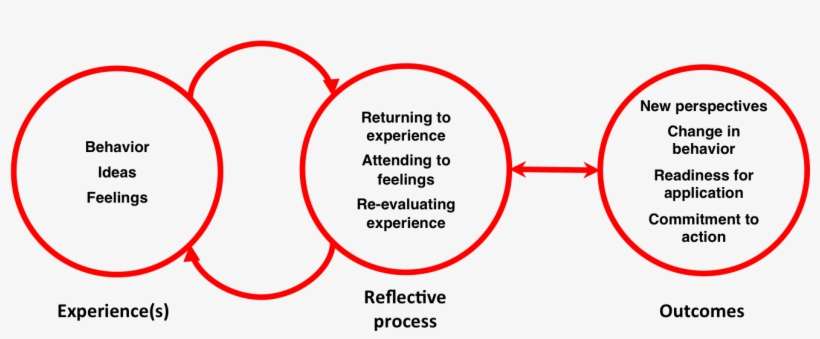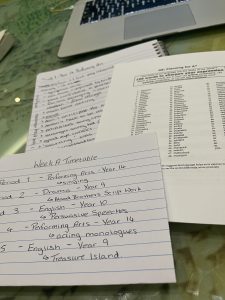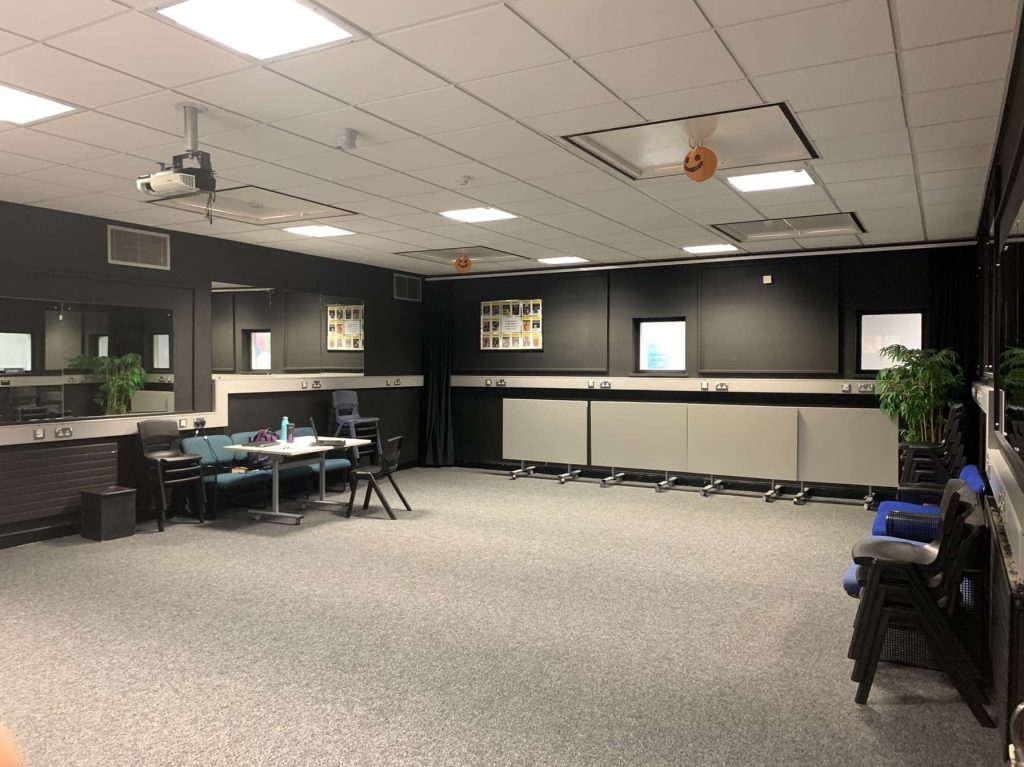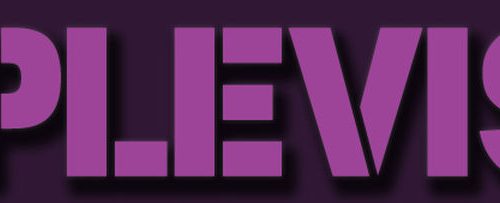The Other Side of the Staffroom Door
‘You’re going to be a teacher one day’. These are the words that echoed through my head as I stood outside the front doors of Antrim Grammar School on the first day of my placement there. These were the words of family, friends, old teachers…even my younger self, so it was surreal to believe that this was actually happening…
At the outset of this module, I knew that I wanted to do a teaching placement. Teaching has been a career that I have considered for many years, and I wanted an opportunity to understand the realities of working within the education sector, in particular a secondary school.
(Davison and Dowson, 2009, pp.322–324)
“Reflection enables you to recognise the aims, values and beliefs that underpin classroom practice and the educational processes of the school”
Now that the initial period of sourcing a placement has ended, and I have begun my placement, I am going to reflect on my experiences to date. In order to do this effectively, I will be using Boud’s method of reflection, which interweaves experience, reflection and outcome, and how they impact each other. ‘The outcomes of reflection may include a new way of doing something, the clarification of an issue, the development of a skill or the resolution of a problem’ (Dawson and Kelin, II, 2014, p.27), meaning that reflecting on my work will allow me to develop the quality of my work.

As my degree is a joint honours in Drama and English, I have training in both, and I knew going into this module that I wanted to experience teaching in both departments. Finding a placement that could accommodate switching between two departments proved to be challenging. Several of the secondary schools that I contacted did not facilitate Drama beyond the key stage four level. I wanted to experience working with sixth form as well, so decided that it was best to continue my search. After some enquiring, Antrim Grammar School responded that they would be thrilled to have someone spanning across departments, and with that, the paperwork began, and my placement was confirmed!
In order to work with young people, you have to have had a background check. In Northern Ireland, this check is called an ‘Access NI’ and is completed through ‘NI Direct’. I had to apply for an enhanced disclosure certificate, which would confirm that I am a safe person to work with young people, and I have now received my certificate to prove this. I also got the opportunity to develop my own timetable, allowing me to circulate between different teachers within the departments. Collaboratively, we developed a timetable that spanned the whole spectrum of year groups in both departments, meaning that I got to observe and manage different teaching and learning styles

First Day of School… but as staff this time!
The first day of my placement was both exciting and nerve-wracking. Initially, I had a conversation with both department heads, Natalie and Noeleen, discussing how the placement was going to proceed. We agreed that it would be best for me to observe and assist initially, and build up to leading class groups over time. I believe that this was a strong approach, as it allowed a foundation of learning to be created from those whom I was working with.

This approach had very different actions in both departments. In English, my first day consisted of distributing work, observing classes, and answering questions. Meanwhile, drama was much more hands on, with my first day including directing year fourteen pupils in their monologues for their coursework, and assisting junior pupils in creating a scripted piece. Both departments therefore required very different things of me, meaning that the day was constantly changing. On reflection, this is representative of teaching as a whole; ‘Teachers are increasingly required to […] adapt speedily and effectively to diverse classroom contexts’ (SCoTENS, 2009). By having my timetable built the way it was, it allows me to develop the skill of adapting quickly, and we plan to continue this approach moving forward.
Everyone has weaknesses.
A weakness that I noticed was that I struggled with asserting myself, in particular when pupils weren’t engaged. This is an essential skill in teaching, and after speaking with the department heads, we created an action plan which will allow me to develop this. It was noted that I worked really well with the students when in smaller groups or one-on-one, a skill that drama in particular have decided to utilise, delegating a handful of students to me in each period. Doing this is allowing me to build my confidence up. The next step in the action plan is to take small group activities, which I am preparing in advance.
When working with the A-Level singers in drama, I noticed that they didn’t use the song as a platform to promote their acting. When discussing this with Natalie, she highlighted that it was an ongoing issue. To combat this, I did some research and created a template for how to approach musical theatre songs. Upon giving this to the students, their performances changed dramatically. This quick development highlighted to me that my resource had helped them in their approach, and has taught me to always have resources prepared.

The first step of many…
Overall, my experience has been very positive this far, but there is still a long way to go. Teaching is a career that keeps you on your toes, which I have experienced already, but it is also very rewarding. I hope that by reflecting on my practice, I am able to develop as a teacher in my time on placement, and become the teacher people have always told me that I could one day be.
by Chloe Patterson
Bibliography
Quotations
Davison, J. and Dowson, J. (2009). Learning to teach English in the secondary school. London: Routledge, pp.322–324. Reflection enables you to recognise the aims, values and beliefs that underpin classroom practice and the educational processes of the school.
Dawson, K. and Kelin, II, D.A. (2014). The reflexive teaching artist : collected wisdom from the drama. Bristol, United Kingdom: Intellect, p.27. The outcomes of reflection may include a new way of doing something, the clarification of an issue, the development of a skill or the resolution of a problem.
SCoTENS, T.S.C. on T.E., North and South (2009). Reflective Practice, Challenges for Teacher Education. The Centre for Cross Border Studies, p.114. Teachers are increasingly required to […] adapt speedily and effectively to diverse classroom contexts.
Images
SeekPNG.com. (1985). Reflection Cycle By David Boud – Boud Reflective Model 1985 PNG Image | Transparent PNG Free Download on SeekPNG. [online] Available at: https://www.seekpng.com/ipng/u2q8u2o0y3i1w7i1_reflection-cycle-by-david-boud-boud-reflective-model/.
Own Image, Assortment of Classroom Materials 2022, Chloe Patterson
Own Image, Image of Antrim Grammar School Performing Arts Classroom 2022, Chloe Patterson
Own Image, Performing Arts Resource 2022, Chloe Patterson
You May Also Like

Securing a Placement: An Observation in Timing and Luck
25 November 2022
Football: A Marketing Tug of War
25 November 2022
